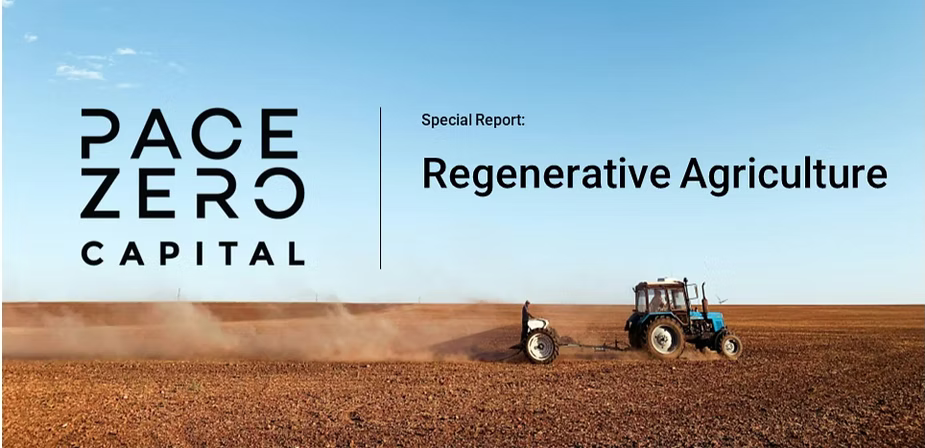
Published: July 24, 2024
“Opportunity Taking Root”
Farmers and food producers face a myriad of challenges, such as regulatory uncertainty, rising input costs and labour shortages. From an environmental perspective, exposure to extreme weather conditions, biodiversity loss and ecological degradation are increasingly of concern to farmers. Combatting these challenges and ensuring an affordable and healthy food supply for growing populations requires new ideas, new technologies and the right amount of public policy support. In our view, regenerative agriculture offers compelling solutions to address many of these pressing challenges.
Regenerative Agriculture
Regenerative agriculture is an approach to farming that aims to improve crop resilience, yield and quality by improving soil health, optimizing water use, enhancing biodiversity and reducing the use of synthetic inputs. The term regenerative agriculture encompasses a variety of practices, from traditional methods, such as low-tech or no-tech practices, to modern methods that incorporate specialized software and hardware solutions.
Traditional regenerative agricultural methods include no-tillage (reduced soil disturbances), cover crops (plants to cover soil at times when cash crops are not being grown) and crop rotation (diversifying the type and timing of crops). Many of these methods are rooted in the agronomy practices of past generations and are enhanced by modern technologies. Examples of technology-driven solutions include the use of connected devices (software-enabled hardware), precision agriculture (satellite-guided tractors) and nutrient management (application of natural biostimulants to address nutrient deficiencies).
Environmental Impact
Regenerative agriculture methods have been shown to reduce the carbon intensity of farming operations. According to the United States (“US”) Environmental Protection Agency, agriculture accounted for 10% of 2022 US greenhouse gas emissions. Canada’s agriculture sector also contributes approximately 10% of the nation’s greenhouse gas emissions (a larger carbon footprint if fertilizer production was included). Globally, despite generating a third of emissions, agribusinesses received only 4% of climate investment, according to a 2023 study by the Climate Policy Initiative.
Market Size
Market research firm Spherical Insights estimates that the global regenerative agriculture market was valued at $7.6 billion in 2023 and is expected to grow to $29.3 billion by 2033, a compound annual growth rate of 14.4%. In Canada, farming contributes more than $143.8 billion annually to GDP, spanning roughly 200 thousand farms and supporting approximately 2.1 million jobs, according to the Ivey Centre for Building Sustainable Value at the University of Western Ontario.
Public Policy Support
Internationally, governments are supportive of regenerative agriculture, with 159 countries having signed the COP28 Declaration on Sustainable Agriculture, Resilient Food Systems and Climate Action. Broad public policy support for regenerative agriculture drives new regenerative agriculture businesses’ research, development and commercialization efforts.
In North America, there is bipartisan support for agricultural programs that emphasize economic stability, food security and environmental protection. The Canadian federal government allocated $704 million in the 2021 budget to the Agricultural Climate Solutions Program (“ACSP”). The ACSP has a mandate to support the adoption of practices that sequester carbon and reduce greenhouse gases, such as regenerative farming. In the US, the Inflation Reduction Act earmarked $19.5 billion for climate-smart agriculture, and in February 2022, the Department of Agriculture allocated $3.1 billion toward The Partnerships for Climate-Smart Commodities initiative.
Taking Action
Mars Inc., a US-based multinational manufacturer of food products, announced in 4Q23 a Net Zero Roadmap focusing on climate-smart agriculture. Mars has 27 initiatives underway covering over one million acres of farmland across more than ten countries and ten different crops, including rice, wheat, barley, corn, soy, almonds and cocoa. Mars’ climate-smart agriculture initiative includes partnerships with farmers to expand regenerative practices, optimize sourcing of inputs, and switch to renewable energy sources.
McCain Foods is a Canadian multinational frozen food company committed to rolling out regenerative agriculture across all its potato acreage globally by the end of 2030. McCain’s strategic initiatives include Farms of the Future, which plans to complete independent trials of regenerative technologies with farmers around the world. McCain’s commitment to innovation allows farmers to test leading agricultural practices without risking yields or profitability.
John Deere is actively involved in the Agtech community through their Startup Collaborator, which launched in 2019 to interact with and support innovative Agtech startups. Over the past three years, John Deere has completed many strategic acquisitions, including a $250 million acquisition of Bear Flag Robotics (integrating autonomous driving with existing machines) in 2021 and the acquisition of SmartApply (precision spraying equipment) in 2023.
Spotlight: MyLand Company, Inc.
Founded in 2014 and headquartered in Phoenix, Arizona, MyLand is a regenerative agriculture company offering ’soil-as-a-service’ focused on improving soil health. Since its inception, the company has raised more than US$30 million, with the most recent round being led by Climate Innovation Capital, a Toronto-based growth equity firm.
MyLand systems deployed on-farm produce live, native algae and distribute it through the farm’s existing irrigation systems. The increased soil organic matter and improved nutrient composition translate into reduced input costs by increasing the soil’s water retention capacity and decreasing the need for chemical fertilizers, ultimately delivering positive returns for growers. Third-party research studies have shown that MyLand’s systems can decrease water use by 30%, fertilizer by 30% and mechanical tillage by 50% on crops in water-stressed regions.
MyLand is partnering with multinational corporations and innovative research organizations. In September 2023, the company signed an agreement with Texas A&M University to research the efficacy of live, native microalgae on soil. In June 2024, they announced a partnership with the United Farmers of Alberta Co-operative Ltd., to evaluate the impact of MyLand services on farming operations within Alberta.
Conclusion
Initiatives by large, multinational agricultural companies and governments often rely on partnerships with growth-stage businesses that are pioneering new methods and technologies. Mars, McCain and John Deere are just a few examples of companies making an effort to improve agricultural practices. With the combination of broad public policy support, innovative new technology, and the significant potential for positive social and environmental impacts, we view the regenerative agricultural market as a compelling segment of the private investment landscape.